Want to attend the course but can’t make it on this date?
Fill in your details below and we’ll notify you when we next present a course in this area:
The South African Vaccine Producers, part of our National Health Laboratories, produces two antivenoms for snakebite – a monovalent antivenom for the venom of the Boomslang, and a polyvalent antivenom which is manufactured using the venom of ten snake species – the Black Mamba, the Green Mamba, the East African Jameson’s Mamba, the Snouted Cobra, the Forest Cobra, the Cape Cobra, the Mozambique Spitting Cobra, the Rinkhals, the Puff Adder and the Gaboon Adder.
While the venom of the Black Spitting Cobra, Black-necked Spitting Cobra and Zebra Cobra are not part of the mix, there may be some cross-coverage for their venoms, but to what degree the polyvalent antivenom may be useful for such bites is unclear. Bites from snakes such as the Common Night Adder, Berg Adder, Bibron’s Stiletto Snake and the Vine Snake are not covered by an antivenom, and doctors treat such bites symptomatically. This may be problematic, and we often see severe tissue damage in Bibron’s Stiletto Snake bites, sometimes even resulting in the amputation of a digit or two (many victims are bitten on a finger or thumb when handling one of these snakes).
Berg Adder bites are quite unique as they often present as a cytotoxic bite in the early stages – pain and swelling – but then the venom affects taste and smell, vision and after a few hours breathing may be compromised. In a study of 14 Berg Adder bites over more than 20 years, every victim had to be intubated and ventilated 4 to 7 hours after the bite.
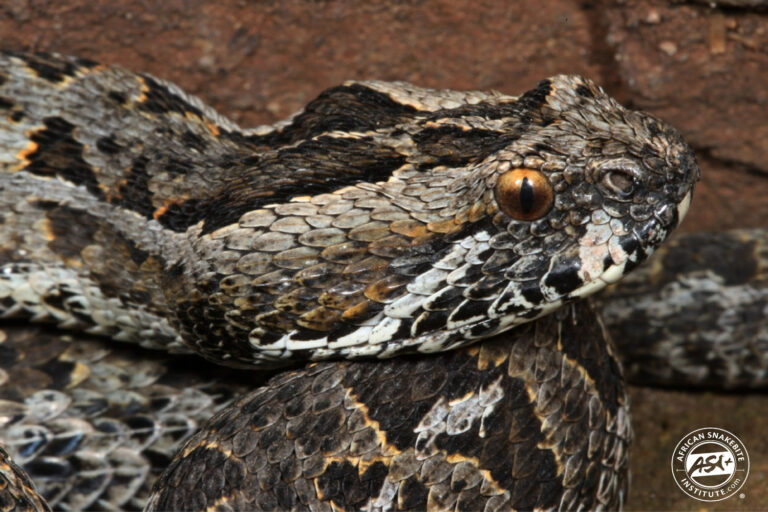
The Common Night Adder is often considered to be mildly venomous, but the venom of this snake should never be underestimated. A bite from a large individual on a small child could result in severe pain and swelling and may require hospitalization. We often see dogs bitten by Night Adders and several dogs are killed by this snake. We recently had a case where a 19 kg dog died after a bite.
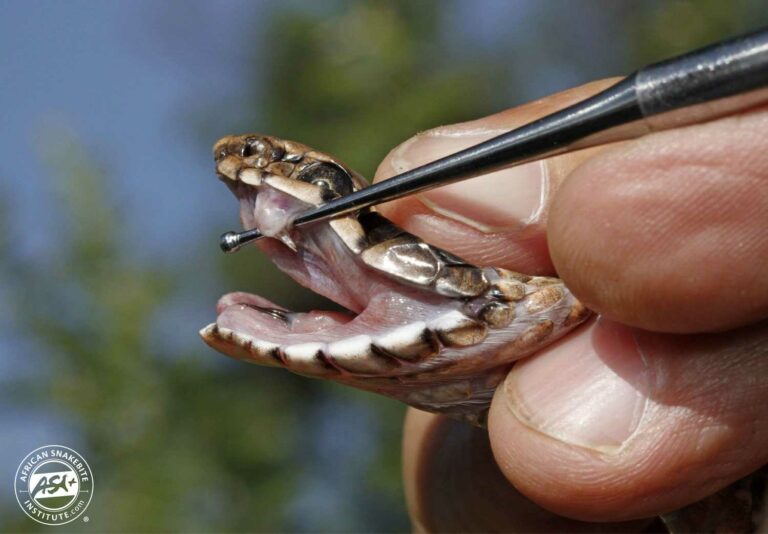
Vine Snakes rarely bite and spend most of their lives well camouflaged in trees and shrubs. But if provoked, this snake will inflate the neck region and the forepart of its body and lunge out with repeated strikes. To date we have not had any recorded fatalities in South Africa but there have been a few fatal bites further north. Vine Snake venom, like Boomslang venom, is potently haemotoxic, compromising the blood clotting mechanism, causing bleeding from the fang punctures, nose, mucous membranes and eventually internal bleeding and brain hemorrhaging. It is often thought that supplementing platelets or a full blood transfusion would be sufficient treatment but that is not necessarily the case. In a case of severe envenomation, a bite from a Vine Snake could be fatal, no matter what treatment is given.
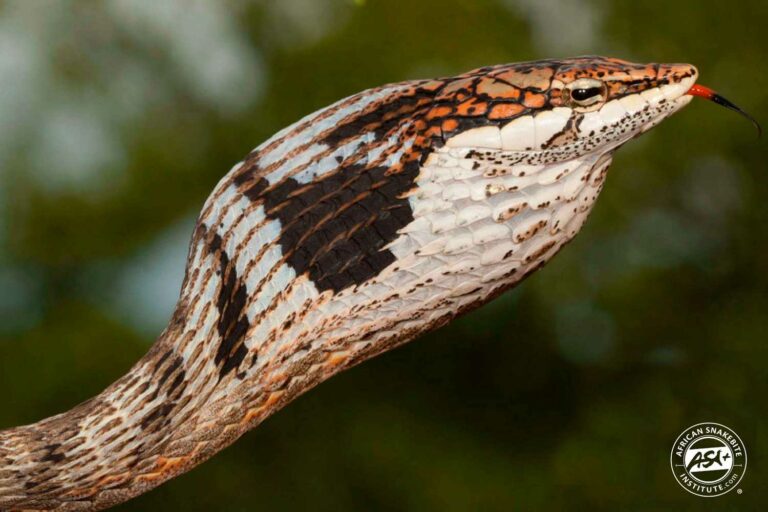
A bite from a potentially lethal snake will not automatically result in the administration of antivenom. All snakebite victims are hospitalised and carefully observed for progressive weakness, painful progressive swelling or, in the case of a Boomslang or Vine Snake bite, bleeding. If the symptoms are severe and justify the administration of antivenom, the treating doctor will go ahead and administer antivenom intravenously via a drip. Blood is usually drawn and sent to a laboratory for analysis.
In Boomslang bites, patients usually receive two vials of monovalent Boomslang antivenom but in some cases a third vial may be necessary.
In cytotoxic bites, such as a bite from a Puff Adder, doctors will usually start with 5 or 6 vials of polyvalent antivenom but in serious neurotoxic bites, such as a bite from a Black Mamba or Cape Cobra, the patient will initially receive around 10-12 vials of polyvalent antivenom. Patients are monitored and may require more antivenom later.
Monovalent Boomslang antivenom costs R6,800.00 per vial while polyvalent antivenom costs R2,130.00 per vial. About 10% of snakebite victims that are hospitalised require and are treated with antivenom. The majority of patients have mild symptoms that do not warrant the administration of antivenom. These patients can be easily treated symptomatically, usually with pain relief and fluids to flush the kidneys.
The correct treatment for serious snakebite envenomation is antivenom. It neutralises the venom and prevents further tissue and organ damage but does not reverse early damage done in bites from snakes with cytotoxic venom. While drugs like neostigmine may have some benefit in some neurotoxic bites, the administration of cortisone, antihistamine and substances like vitamin K have little effect initially and are certainly not lifesaving.
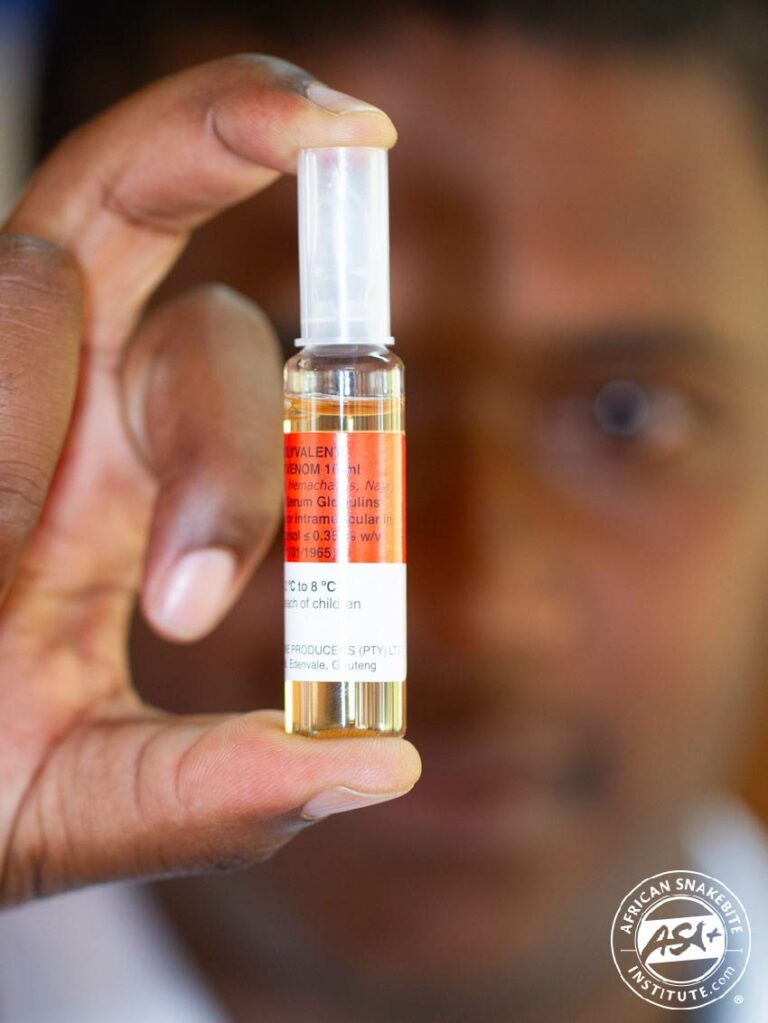
While we have excellent antivenoms they have their limitations. In a recent study published by Dr George Oosthuizen and colleagues, they showed that up to four out of ten patients treated with SAVP antivenom had a severe allergic reaction. Once a patient goes into anaphylactic shock the administration of antivenom has to be stopped immediately and the patient stabilized. This is done partially by administering adrenaline. Because of the high incidence of anaphylaxis, antivenom is only administered in a high care unit in a hospital where a medical team can provide the necessary treatment.
While some Black Mamba and Cape Cobra bite victims have survived without antivenom, by being intubated and ventilated, the correct treatment for a serious snakebite remains the administration of antivenom. Snake venoms are complex mixtures of toxins and when Black Mamba venom is described as neurotoxic, it is not only neurotoxic but primarily neurotoxic and may contain other toxins that affect other organs.
In serious cytotoxic envenomation there is no other effective treatment – the patient will benefit greatly if enough antivenom is administered. Having said that, the SAVP polyvalent antivenom is not highly effective on Mozambique Spitting Cobra bites and many victims, even those that receive ample antivenom, suffer severe tissue damage and often need corrective surgery over the next few months following a bite.
While the South African Vaccine Producers have had production problems over the years, they ran into serious production problems early in 2022, citing power outages and supply problems as the main contributing factors. For more than six months it has been near impossible to purchase antivenom and this has resulted in some areas having a severe shortage. Veterinarians have been particularly hard hit as they often treat dogs for serious snakebites. The African Snakebite Institute has been inundated with calls from doctors, hospitals and veterinarians desperately wanting to purchase antivenom, but sadly we could not always assist. This has often lead to dogs dying at veterinary practices.
The SAVP antivenom is popular throughout much of Africa and several African countries rely on antivenom purchased from the South African Vaccine Producers. This has been majorly problematic and in many instances, doctors have been reluctant to use the normal dosages of antivenom when treating snakebites – clearly not an ideal situation.
While progress has been made to get production back to normal there is still a massive backlog and many hospitals and veterinary clinics will struggle to obtain sufficient antivenom in months to come.
Would it be an option to establish alternative antivenom producers? Not easily as any new antivenom will have to be subjected to clinical trials and this takes many years and will costs millions of Rands to develop.
We receive many calls from people asking which hospitals stock antivenom. Unfortunately, we do not know as any hospital may have antivenom when we call, use it an hour later and they may not replace it for weeks.
Important! Knowing which hospital has antivenom is not important. In the event of a snakebite, get the person to the nearest hospital with a trauma unit where the patient will be stabilized. Once out of immediate danger, and this may involve intubation and ventilation, doctors can then decide whether antivenom needs to be administered and, if not available, to either transfer the patient or obtain antivenom.
How can you help?
Most serious snakebite cases require 6 – 15 ampoules of polyvalent antivenom and this costs around R14,500 – R28,600 per treatment! Many people have asked us how they can assist snakebite victims – in light of this, we created the African Snakebite Institute Foundation, a registered Nonprofit Organisation (NPO no. 231-106). The ASI Foundation has two main focus areas, the first is to assist in educating people about snakes, snakebite and first aid. And the second is the distribution of antivenom to those in need. We have set up our first antivenom bank in Pretoria and have already managed to supply antivenom to hospitals and vets. The ASI Foundation’s ambitious plan is to establish over 20 antivenom banks across the country, with both monovalent and polyvalent antivenom available 24 hours a day. The idea is to set these banks up at various pharmaceutical departments of universities and hospitals. This project will cost in the region of one million Rand and this initiative will rely on the donations of corporates as well as members of the public. Every cent donated will go towards purchasing antivenom and no money will be used for any other purpose, including salaries or travel. If you would like to assist, you can find more information on the website or contact Ashley on foundation@asiorg.co.za
The response to this project has been great, and we have had 139 active donors already. Should you wish to donate to this cause, you can find details on the website, or make payments directly to the following banking details:
African Snakebite Institute Foundation NPO
First National Bank
Bank Account Number 62858750055
Branch Code 250655
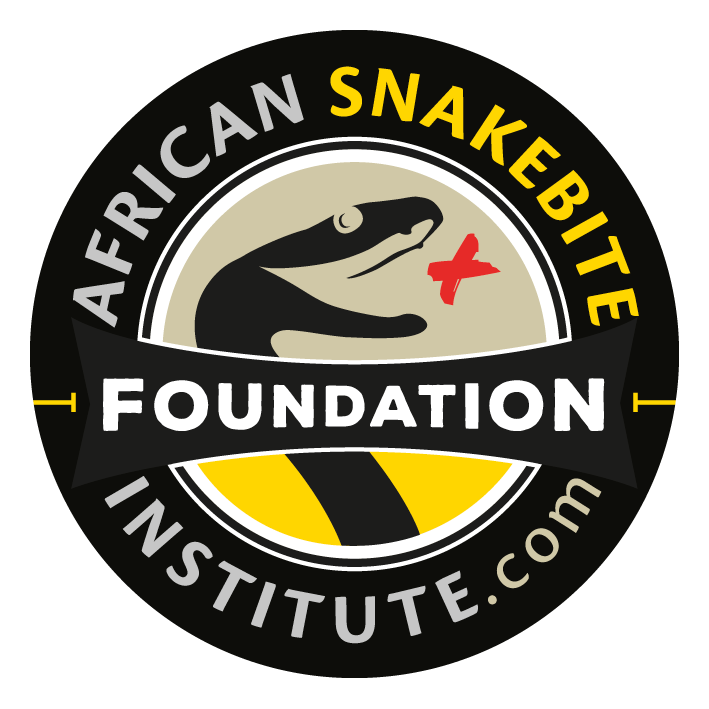
CONTACT US:
Product enquiries:
Caylen White
+27 60 957 2713
info@asiorg.co.za
Public Courses and Corporate training:
Michelle Pretorius
+27 64 704 7229
courses@asiorg.co.za
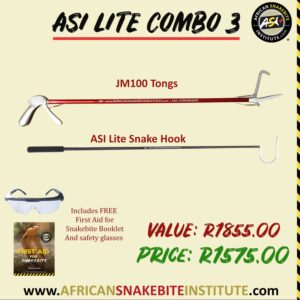 ASI Lite Combo 3
R1,575.00
ASI Lite Combo 3
R1,575.00
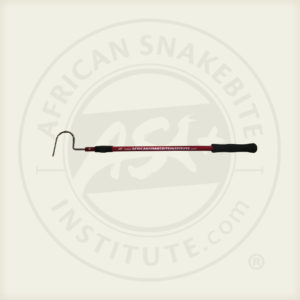 ASI Collapsible Snake Hook - 1.2 m
R650.00
ASI Collapsible Snake Hook - 1.2 m
R650.00
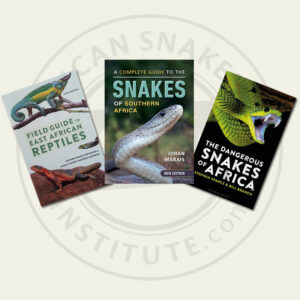 ASI Book Combo 2
ASI Book Combo 2
Want to attend the course but can’t make it on this date?
Fill in your details below and we’ll notify you when we next present a course in this area:
Want to attend the course but can’t make it on this date?
Fill in your details below and we’ll notify you when we next present a course in this area:
Want to attend the course but can’t make it on this date?
Fill in your details below and we’ll notify you when we next present a course in this area:
Want to attend the course but can’t make it on this date?
Fill in your details below and we’ll notify you when we next present a course in this area:
Want to attend the course but can’t make it on this date?
Fill in your details below and we’ll notify you when we next present a course in this area:
Want to attend the course but can’t make it on this date?
Fill in your details below and we’ll notify you when we next present a course in this area:
Want to attend the course but can’t make it on this date?
Fill in your details below and we’ll notify you when we next present a course in this area:
Want to attend the course but can’t make it on this date?
Fill in your details below and we’ll notify you when we next present a course in this area:
Want to attend the course but can’t make it on this date?
Fill in your details below and we’ll notify you when we next present a course in this area:
Sign up to have our free monthly newsletter delivered to your inbox:
Before you download this resource, please enter your details:
Before you download this resource, would you like to join our email newsletter list?